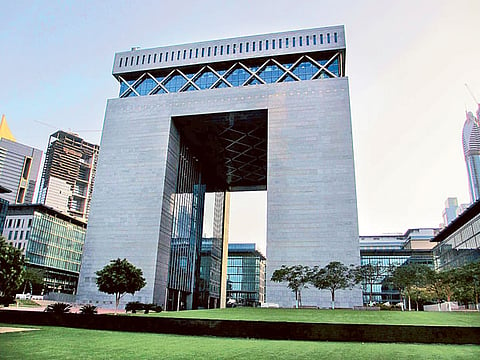AI and aging populations will dictate next-gen investment decisions: Investcorp survey
Climate change will be another factor deciding where funds will flow next

Also In This Package
Dubai: Aging populations and climate change will be key determining factors in institutional investors parking their funds in the immediate future. But the most important factor will be AI and how the tech advances created by it will reshape businesses and economies.
“We see digitization and AI as an area ripe for investment,” said Rishi Kapoor, Investcorp’s Co-CEO. There are also “ample opportunities for investors to capture the economic upside associated with these mega-trends [aging population and climate change] either through direct investment or, more commonly, by allocating to external managers.”
These form the latest findings in Bahrain-headquartered Investcorp’s latest survey of fund managers. It was done in association with Mercury Capital Advisors, the institutional capital raising and investment advisory, IMD Business School and Banque Pâris Bertrand, a Swiss-regulated private bank based in Geneva and Luxembourg.
New on the list this year were the dominance of China and digital and cryptocurrencies, “demonstrating that a significant portion of respondents see them not as short-term trends, but those that are here to stay and deserving of significant attention and capital allocation.
Mega-trend spotting
• Digitization and AI: Nearly 95 per cent of investors polled cited this as the top trend that will shape the global economic landscape. They are more likely to invest in this trend via a combination of both public and private markets. The majority of investors feel that the significance of automation, digitization and AI will be especially felt over the next two decades, with meaningful progress in key industry segments to occur seven years from now.
• Aging population: Two-thirds of investors expect the aging population trend to maintain its importance until at least 2050, indicative of the "large senior living welfare funding gap that exists today and the equally attractive investment opportunity it presents over the long-term," according to Investcorp. "Investors feel that healthcare and retirement services present the greatest opportunity and expect meaningful investment opportunities to arise 10 years from now."
• Impact of climate change: Investors expect climate change to significantly shape the global economy over the next two decades, which is consistent with global developments in addressing climate change risks and opportunities. Participants were more likely to invest in the impact of climate change through both public and private markets (63 per cent), as opposed to favoring one over the other. Over the short term, investors expect the greatest opportunities to be within the renewable energy and clean technology segments.
• External managers vs. direct investing: Investors continue to prefer allocating funds to external managers over direct investing. This holds true "regardless of whether the investment strategy is exclusively private, exclusively public, or mixed in approach".
• Private markets vs. public securities: Institutional investors were either tilted towards private or public markets. Not surprisingly, private markets-tilted investors had the highest expectations in terms of future overall target returns, exceeding public market expectations by 400 basis points.
Sign up for the Daily Briefing
Get the latest news and updates straight to your inbox









